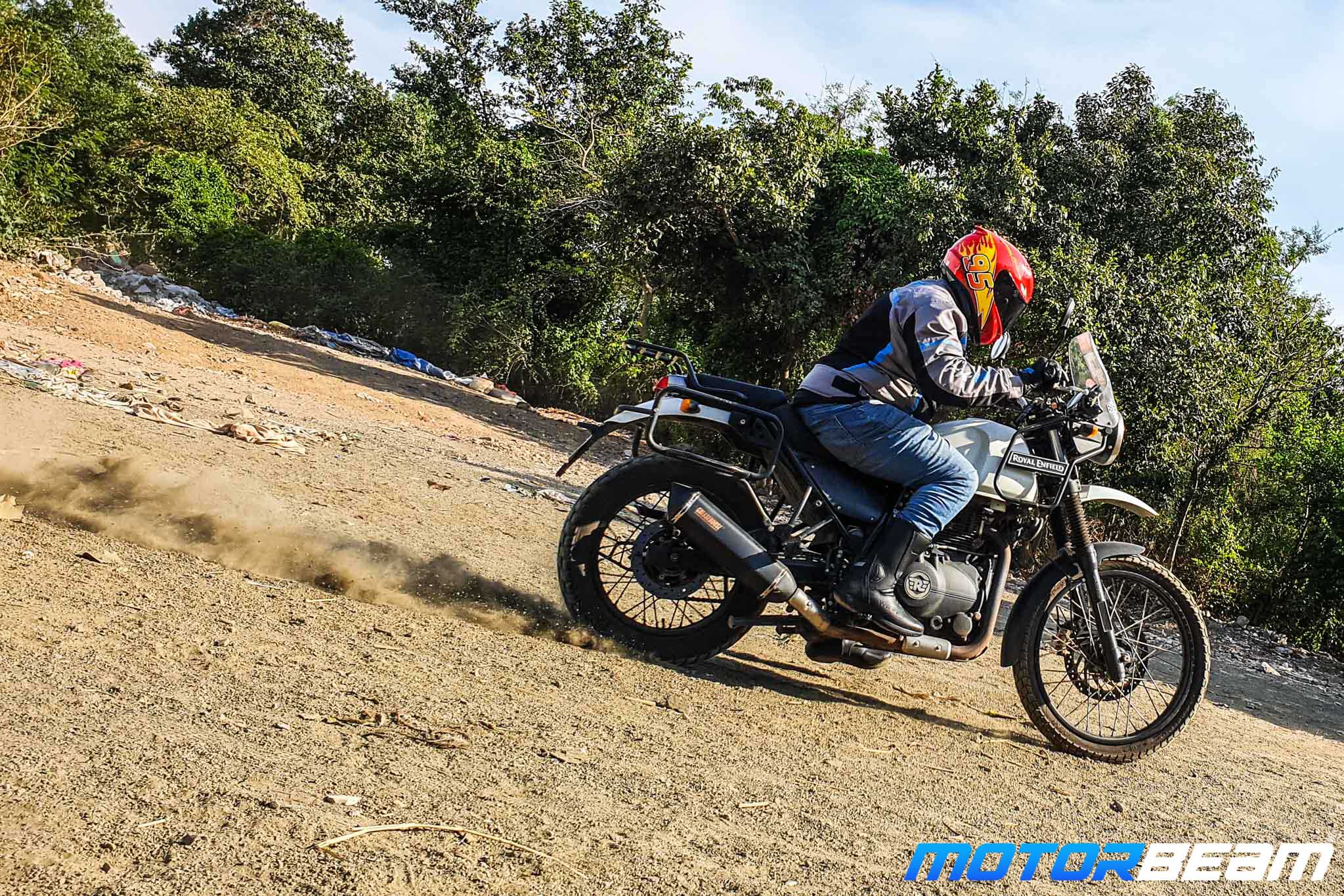Royal Enfield Himalayan Exhaust Review – Greasehouse Grunt V4
We fit a Greasehouse Grunt V4 exhaust on a Royal Enfield Himalayan to see what kind of an improvement it brings.
We fit a Greasehouse Grunt V4 exhaust on a Royal Enfield Himalayan to see what kind of an improvement it brings.
Home » Bike News » Royal Enfield Himalayan » Royal Enfield Himalayan Exhaust Review – Greasehouse Grunt V4
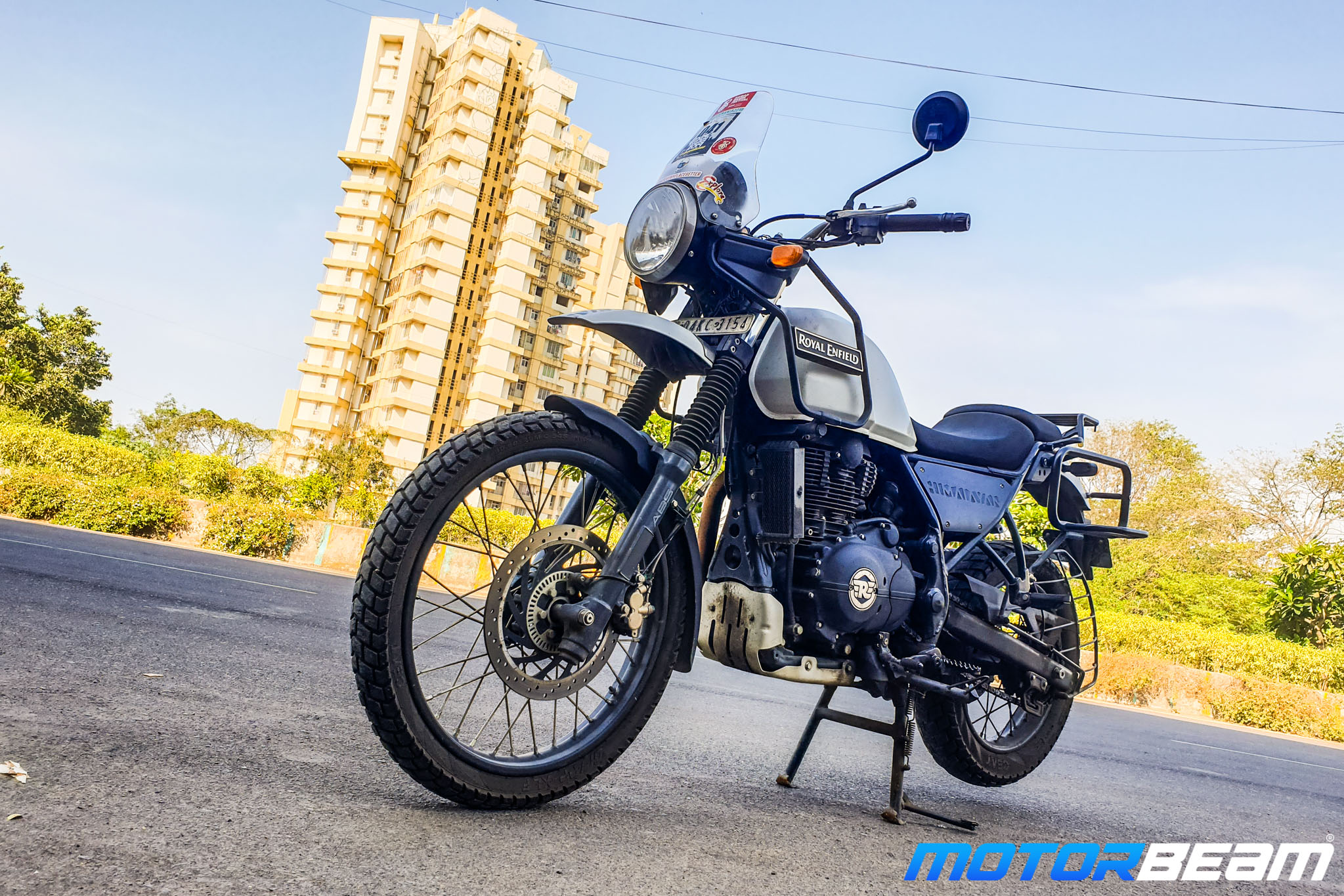
Product Tested: Greasehouse Grunt V4
Product Type: Exhaust Endcan
Test Bike: Royal Enfield Himalayan
Stock Exhaust Weight: 4.2 kgs (endcan)
New Exhaust Weight: 2 kgs (endcan)
Test Started At: 7452 kms
Test Ended At: 8560 kms
Kilometres Tested: 1108 kms
Price: Rs. 9450/- (without Shipping)
The Grunt V4 exhaust has the perfect grunt with brilliant built quality
We have reviewed a lot of performance enhancement products on MotorBeam like ECUs, tyres and a quite a few more. But rarely does it happen that we have got a performance exhaust to review. So the item that we received was the Grunt V4 from Greasehouse Customs which is a custom division under Indimotard. As the name suggests, it is the 4th iteration of the exhaust and they have made this one specifically for the Himalayan.
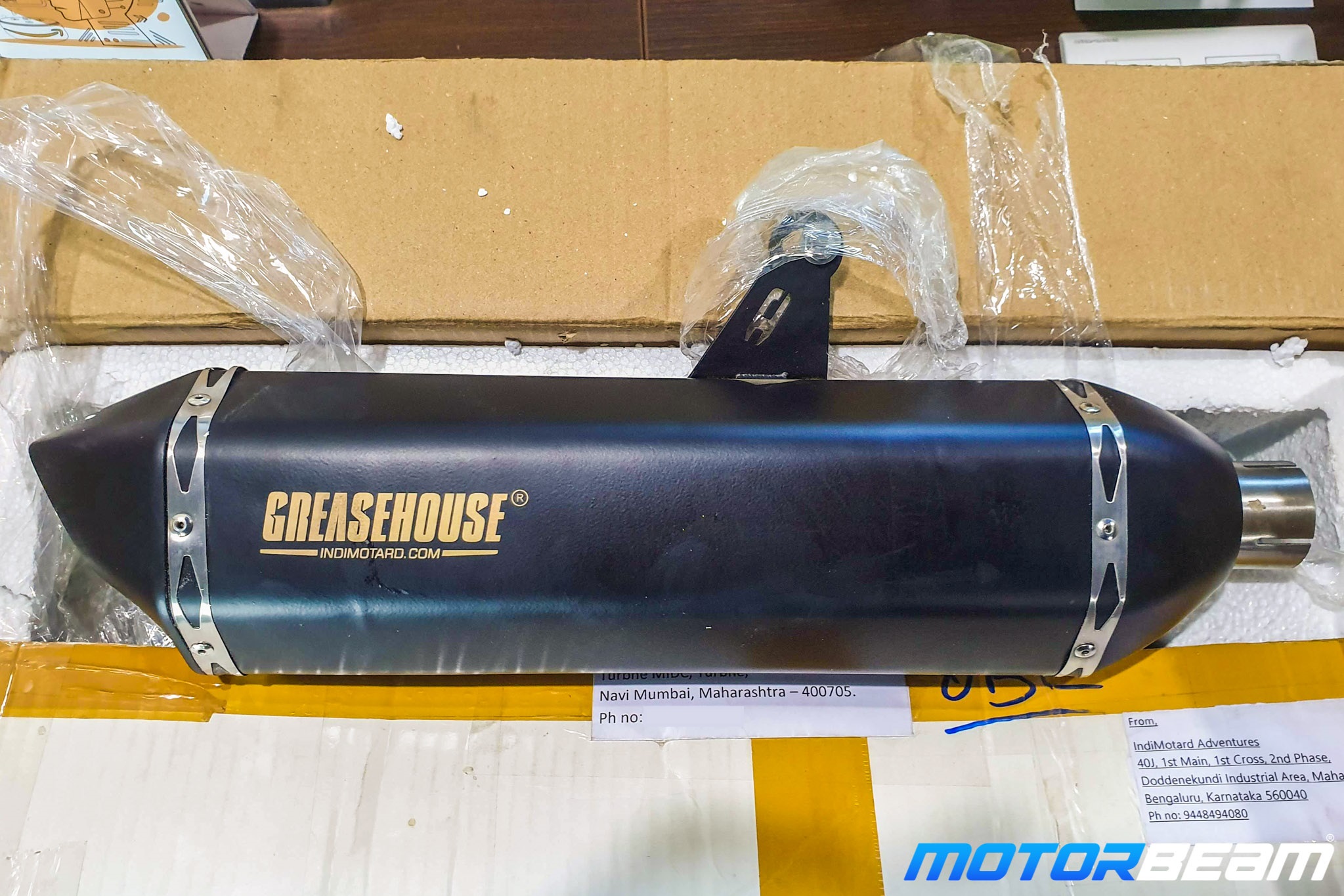
At first, we saw the exhaust at the Royal Enfield Rider Mania and the build quality seemed pretty good. It looked very similar to the stock exhaust and had two colour options – matte black and chrome. We definitely liked the matte black as it had a stealth look. So we asked Indimotard to send us the matte one for review and as soon as it arrived, every biker in the office liked it a lot. Really good built quality and a brilliant fit & finish to the product was our first impression.
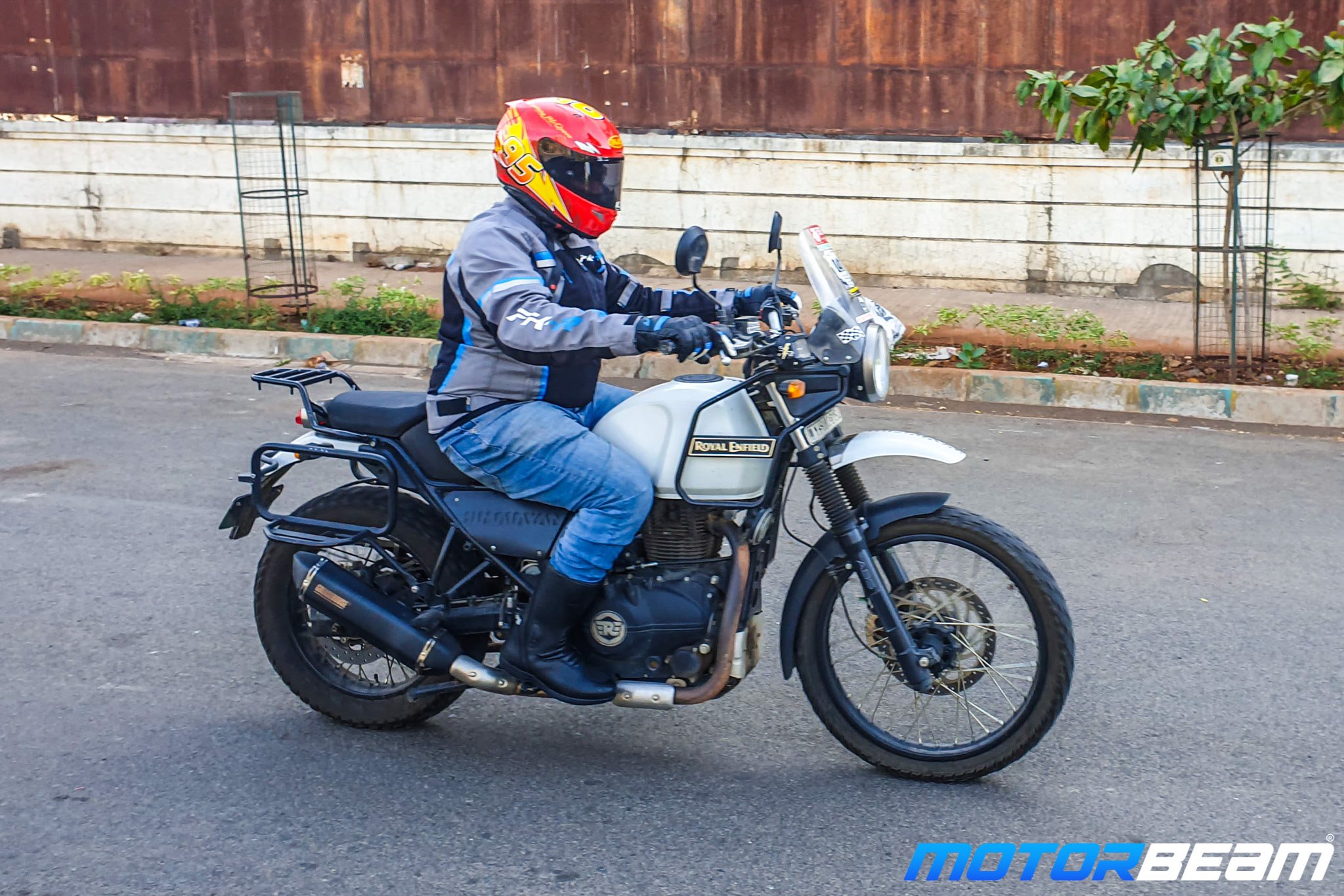
We got the exhaust in the first week of March and we were instructed to keep the DB-killer installed and be gentle on the throttle for the first 500 kms. The Royal Enfield Himalayan is an easy canvas to work on as we were able to install the exhaust ourselves with the set of tools in the toolkit itself. The box has the exhaust endcan and just an extra Allen key to remove the DB-killer. It took us barely 20 minutes to get the old exhaust out and install the Grunt V4.
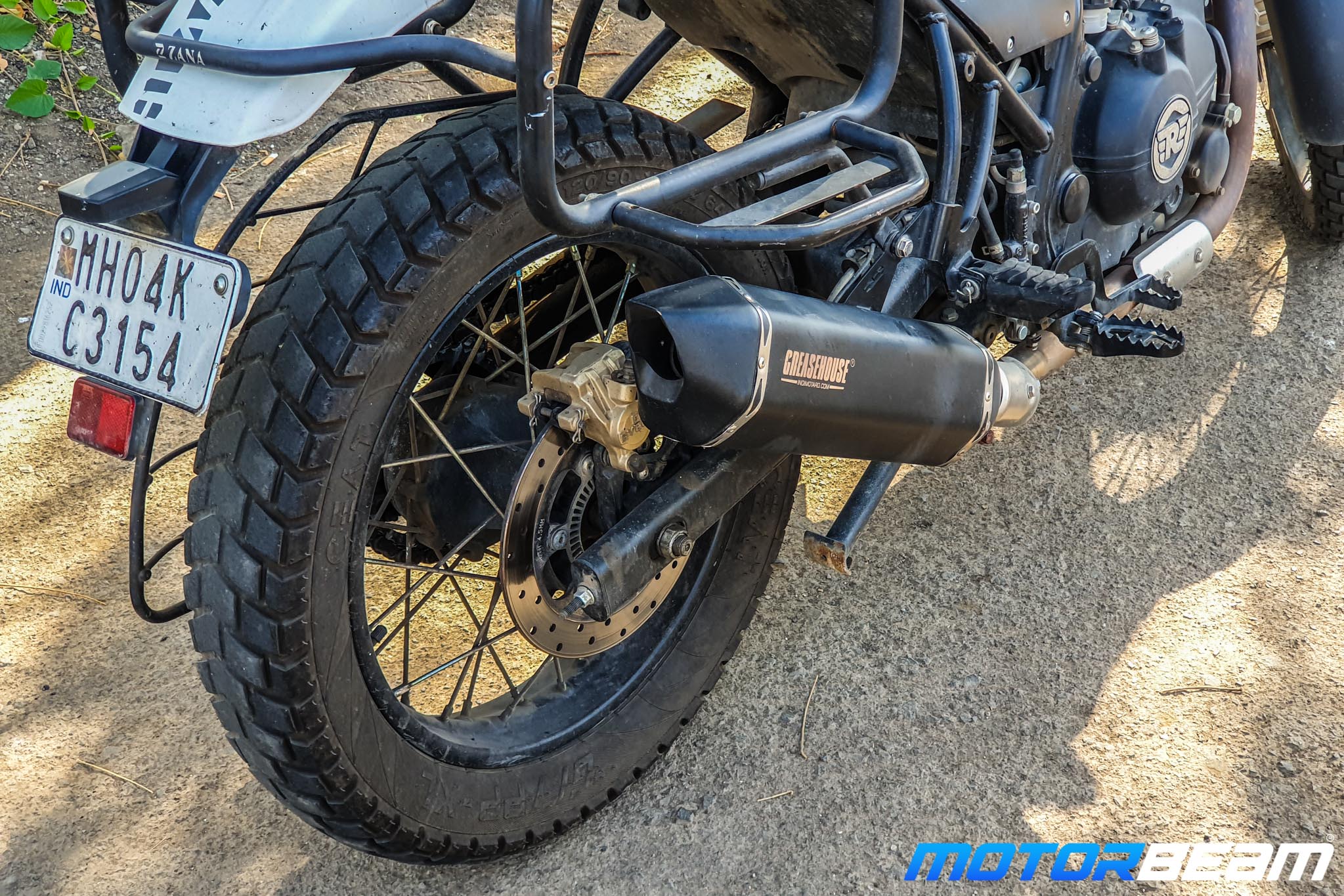
The first thing we noticed was that the performance exhaust was not just a straight pipe unit but also it was almost 2.2 kgs lighter than the stock exhaust. We knew a minor drop in weight won’t make much of a difference but the free flow of the exhaust would definitely work well. From the first startup till the 500 km mark, we had the DB-killer installed and it didn’t sound any different from the stock exhaust. The throttle response, however, had improved by a very tiny margin.
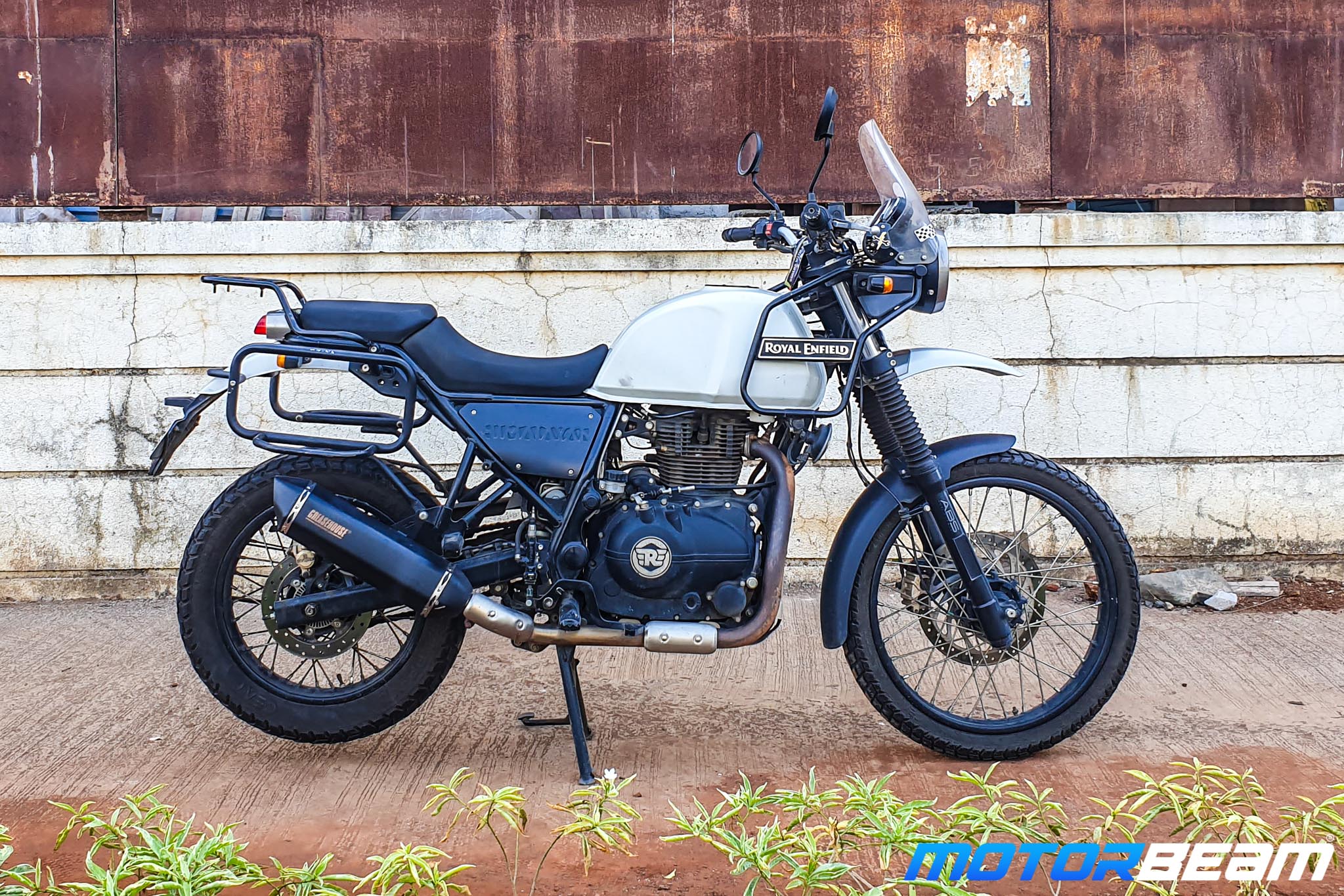
Light-weight stainless steel structure ensures no rust and great performance
As we started riding every day, the difference was minimal but the exhaust note improved overtime. Almost 10 days later, the glass wool inside the exhaust settled and it got a bit vocal than the stock exhaust. It was time to take the DB-killer off so that we could hear the proper exhaust note while also test the full potential of the upgrade. But the lockdown hit us hard and we had to stay put for 2 months.
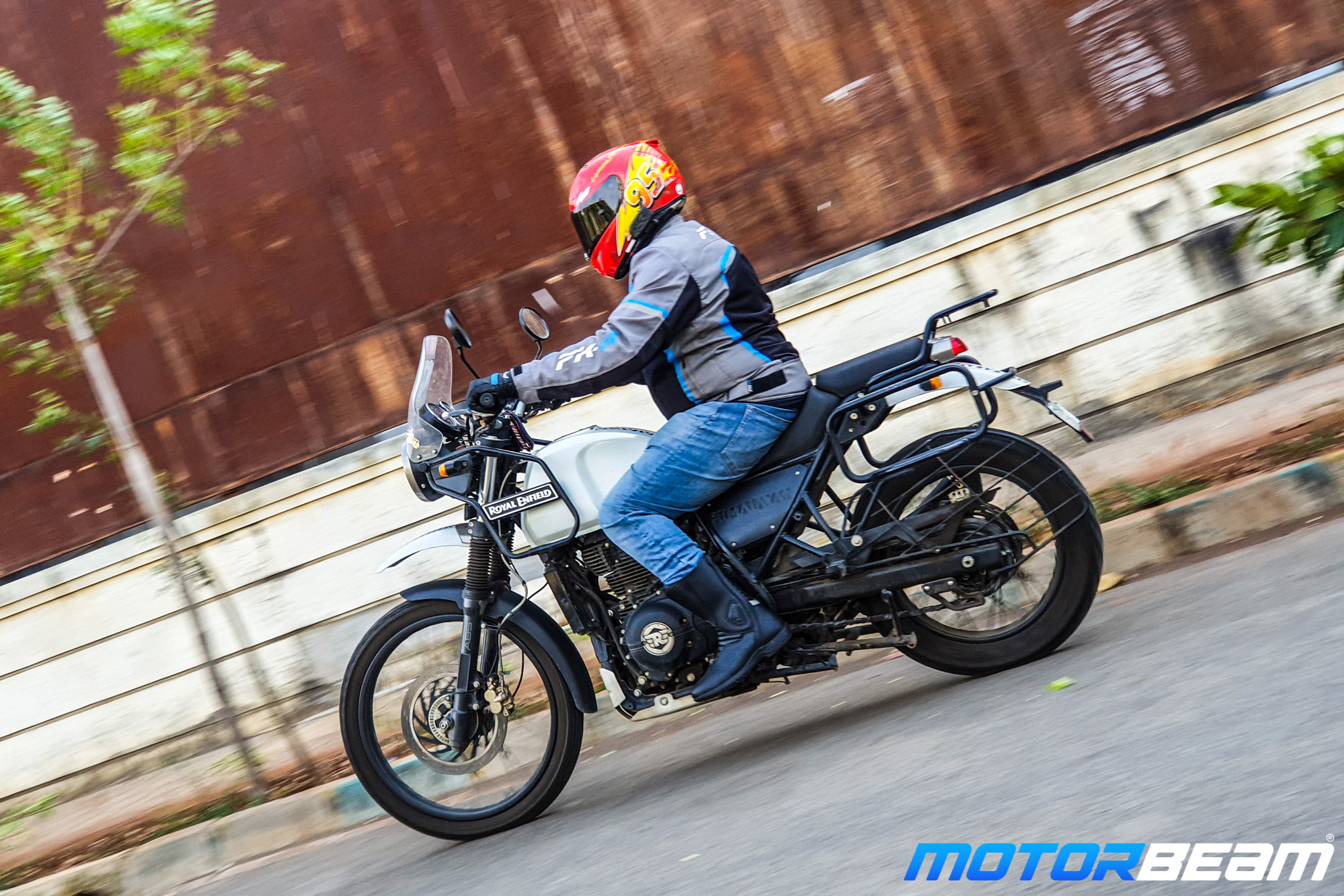
Right before the lockdown, we had completed roughly 500 kms with the new exhaust and it was time to do some more without the DB-killer to enjoy the grunt! We eventually took it out and even without the DB-killer, the exhaust isn’t too loud. The throttle response improved by a huge margin and the bike now feels livelier than before. It accelerates much quicker yet it wouldn’t create a racket even though we hit the redline quite often. As a third-person perspective, the exhaust never looked like an aftermarket attachment.
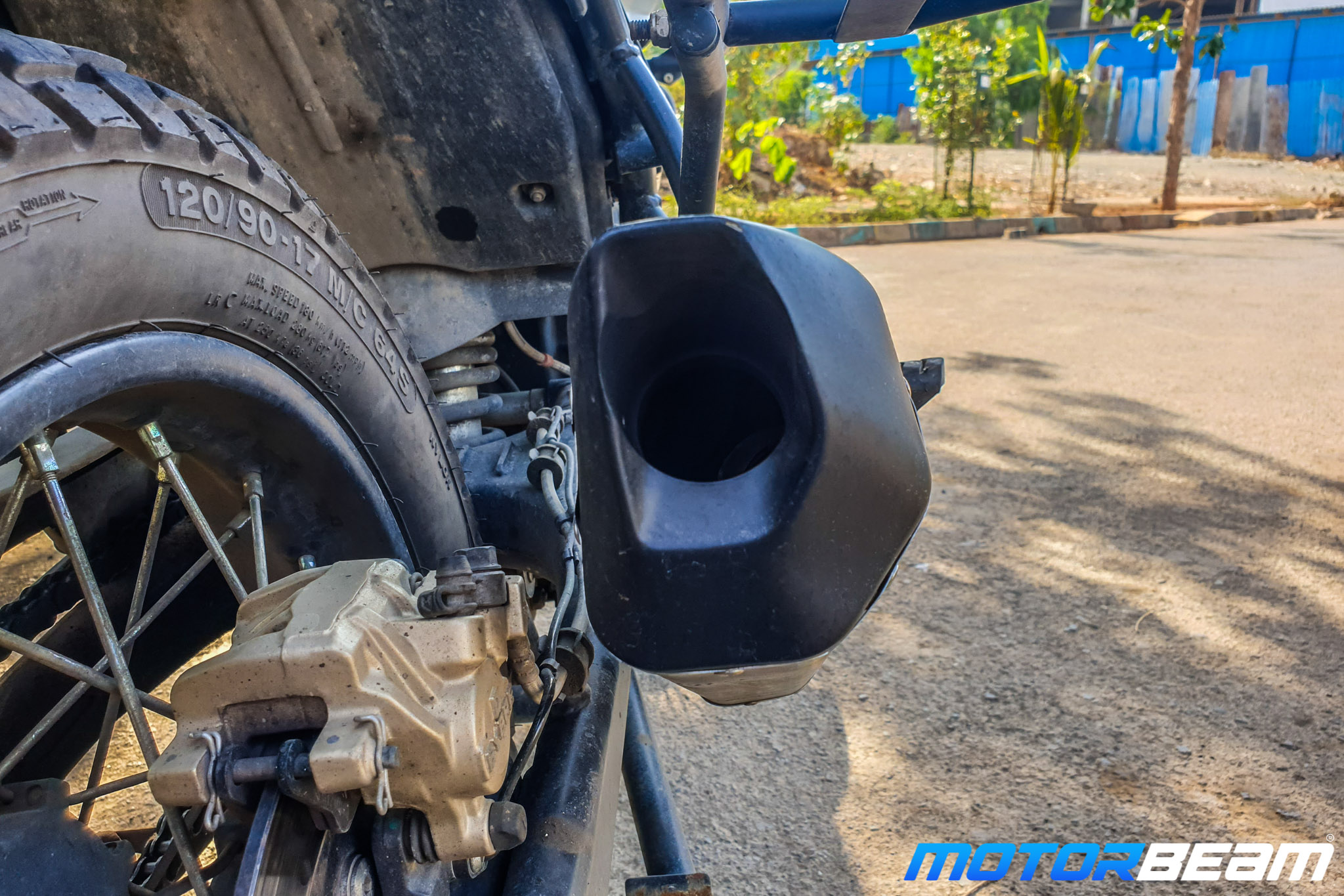
The difference was not major but it was evident that the Himalayan performed better than stock. To get the numbers right we got the VBOX test done for top-speed as well as in-gear acceleration. The mid-range performance had improved significantly but the low-end torque dropped slightly. Hitting the ton became faster by half-a-second while the in-gear acceleration had good results too. Although the low-end torque had an adverse effect in some in-gear acceleration runs as it was too low for the speed, we could achieve a slightly higher top speed than stock.
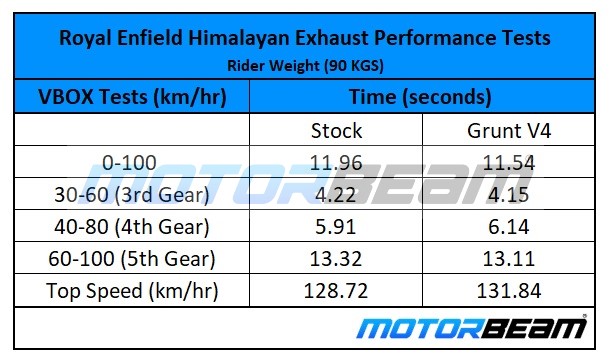
So did the performance exhaust improve the performance? Yes, it did by a tiny yet considerable margin. In addition to that, we got an exhaust that has a nice grunt and is not too loud. At cruising speeds, the vibrations dropped too which was another bonus to the package. At Rs. 9450/- it isn’t as costly as the international exhausts but it is a bit steep considering the aftermarket exhausts for Royal Enfield motorcycles range between Rs. 4000-7000/-. To improve the performance of the Himalayan we will definitely look for more options while this exhaust is undoubtedly going to stay.
